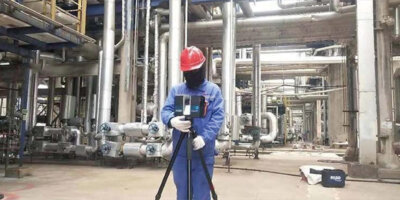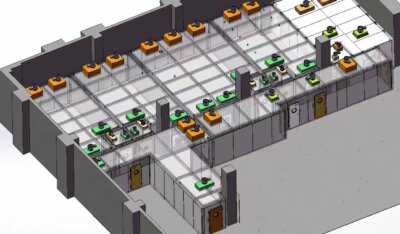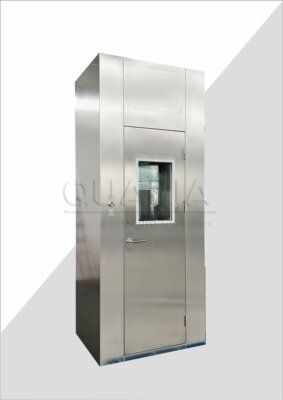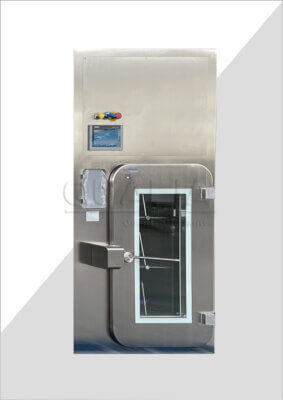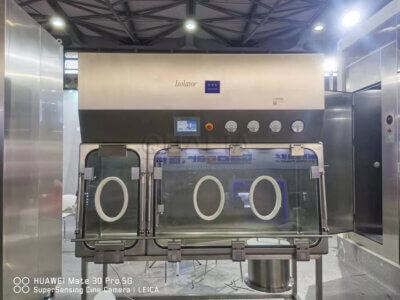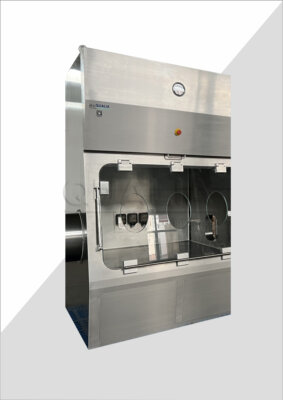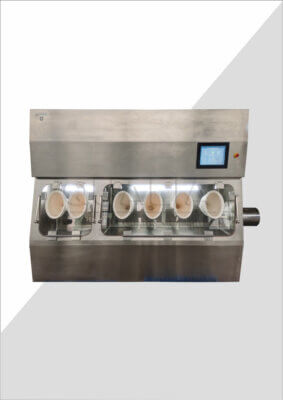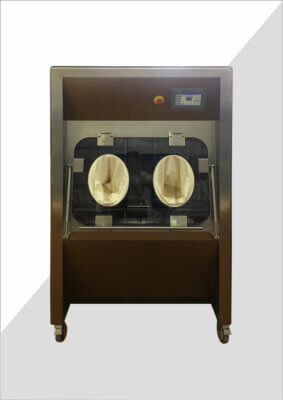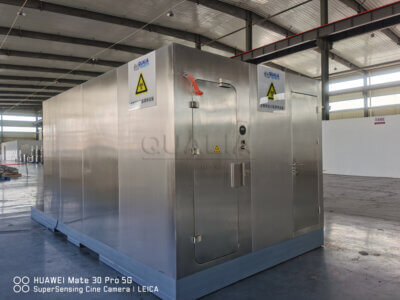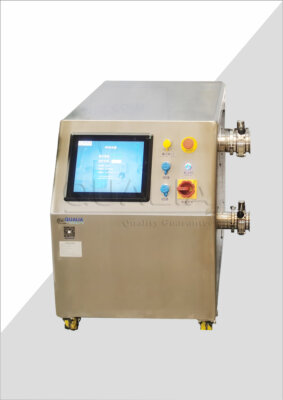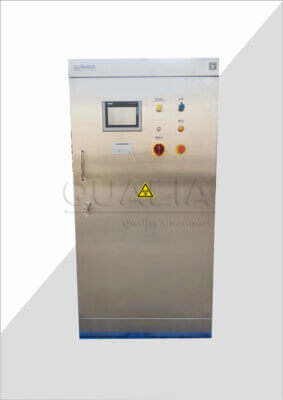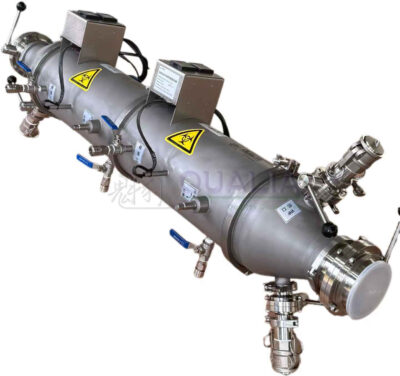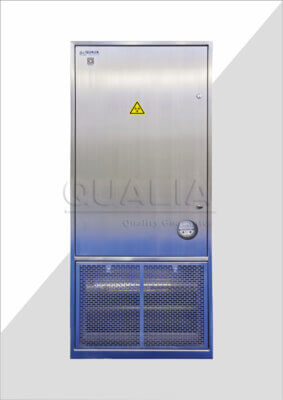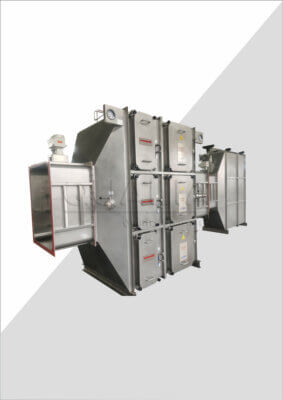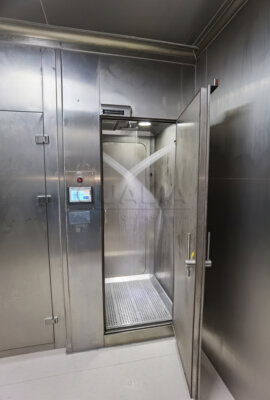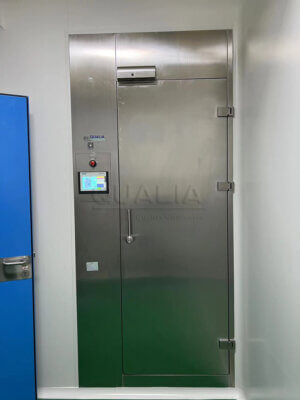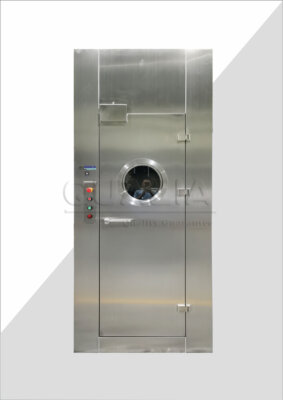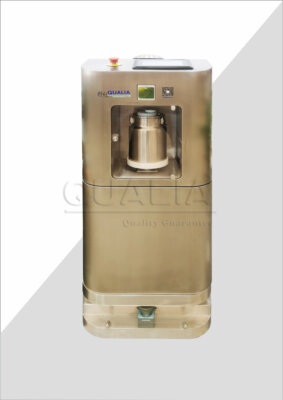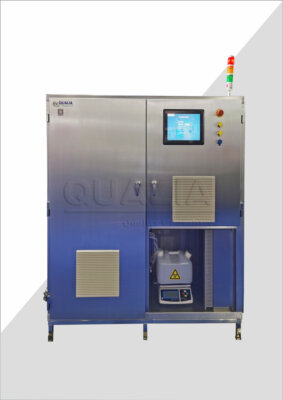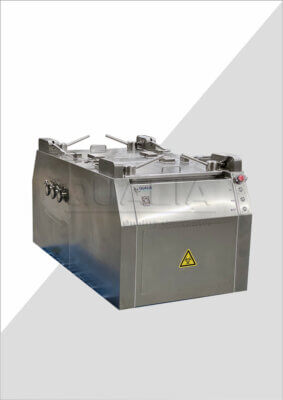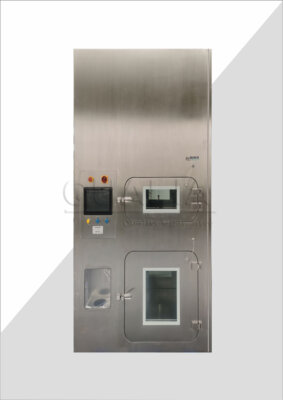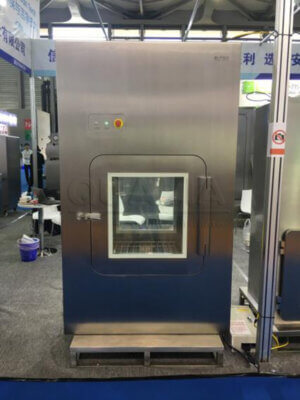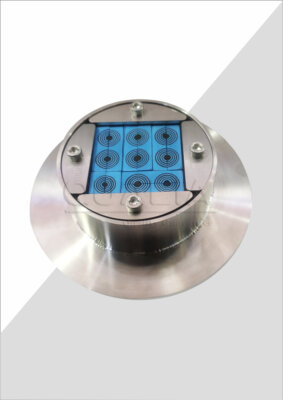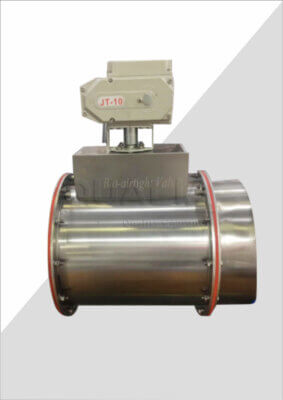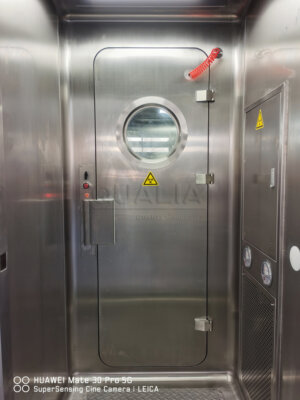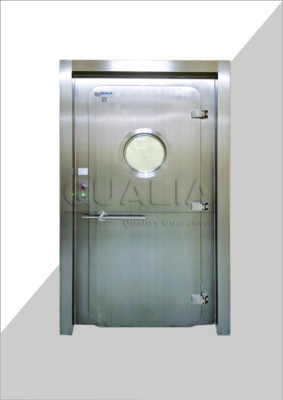Laboratory professionals often struggle with finding reliable suppliers for specialized components like vacu-pass cord ports. These critical sealing systems require precision engineering and consistent quality, yet many procurement teams waste valuable time navigating through unreliable vendors, inconsistent product specifications, and inadequate technical support.
The consequences of partnering with substandard suppliers extend far beyond initial cost savings. Poor-quality vacu-pass ports can compromise laboratory vacuum integrity, leading to failed experiments, equipment damage, and costly downtime. Without proper supplier vetting, laboratories risk receiving products that don’t meet their specific chamber configurations or performance requirements.
This comprehensive guide provides detailed insights into identifying trustworthy vacu-pass suppliers, evaluating distribution channels, and establishing long-term vendor relationships that ensure consistent access to high-quality cord ports and technical expertise.
QUALIA Bio-Tech has been at the forefront of vacuum sealing technology, offering industry-leading insights into supplier selection and product quality standards.
What Are Vacu-Pass Cord Ports and Why Are They Essential?
Vacu-pass cord ports represent sophisticated vacuum feedthrough systems designed to maintain chamber integrity while allowing electrical cables and instrumentation leads to pass through vacuum boundaries. These specialized components utilize advanced sealing technologies to prevent air infiltration in critical laboratory environments.
Technical Specifications and Performance Requirements
Modern vacu-pass systems typically operate across pressure ranges from atmospheric to 10^-9 Torr, with temperature tolerances spanning -196°C to +200°C. The sealing mechanism often employs elastomeric compression systems combined with mechanical clamping assemblies to achieve reliable vacuum integrity.
Key performance metrics include:
- Leak rates below 1 × 10^-9 mbar·l/s
- Electrical isolation resistance exceeding 10^12 ohms
- Operational cycle life spanning 10,000+ insertions
- Chemical compatibility with standard laboratory solvents
Applications Across Laboratory Environments
Research facilities utilize these ports across diverse applications including electron microscopy, mass spectrometry, plasma processing, and cryogenic systems. In our experience working with semiconductor fabrication facilities, vacu-pass ports serve as critical interfaces for sensor monitoring and process control systems.
| Application | Typical Pressure Range | Temperature Requirements |
|---|---|---|
| Electron Microscopy | 10^-7 to 10^-9 Torr | -196°C to +150°C |
| Mass Spectrometry | 10^-5 to 10^-8 Torr | -50°C to +250°C |
| Plasma Processing | 10^-3 to 10^-6 Torr | 25°C to +300°C |
Common Challenges and Limitations
While vacu-pass systems offer excellent sealing performance, they require careful handling during installation and maintenance. The elastomeric seals can degrade when exposed to aggressive chemicals or extreme temperature cycling. Additionally, cable diameter limitations may restrict certain applications requiring large conductor bundles.
How to Choose the Right Vacu-Pass Suppliers for Your Laboratory?
Selecting appropriate suppliers requires systematic evaluation of technical capabilities, quality systems, and service infrastructure. The supplier landscape includes specialized vacuum component manufacturers, laboratory equipment distributors, and industrial automation vendors.
Evaluating Technical Expertise and Engineering Support
Leading suppliers maintain dedicated engineering teams capable of providing custom solutions for unique chamber configurations. According to recent industry surveys, 78% of laboratory managers prioritize suppliers offering application-specific technical consultation over those providing solely catalog products.
Effective suppliers demonstrate expertise through:
- Detailed product specifications with performance validation data
- Custom modification capabilities for non-standard applications
- Comprehensive technical documentation and installation guides
- Responsive engineering support for troubleshooting applications
Quality Certification and Manufacturing Standards
Reputable suppliers maintain ISO 9001 certification and implement rigorous quality control processes. Manufacturing facilities should employ precision machining capabilities, controlled assembly environments, and comprehensive testing protocols to ensure product consistency.
Supply Chain Reliability and Inventory Management
Established suppliers maintain adequate inventory levels to support urgent laboratory requirements. It’s worth noting that suppliers with global distribution networks typically offer shorter lead times and reduced shipping costs compared to single-location vendors.
Where to Buy Vacu-Pass Ports: Top Distribution Channels
The market offers multiple procurement channels, each with distinct advantages depending on laboratory requirements, budget constraints, and timeline considerations.
Direct Manufacturer Relationships
Purchasing directly from manufacturers like QUALIA Bio-Tech’s vacu-pass systems provides access to complete product lines, custom engineering services, and competitive pricing for volume purchases. Direct relationships facilitate rapid technical support and ensure access to latest product innovations.
Advantages of direct purchasing include:
- Complete product specification transparency
- Access to custom modification services
- Streamlined warranty and service support
- Competitive pricing for bulk orders
Laboratory Equipment Distributors
Regional distributors offer consolidated purchasing opportunities, combining vacu-pass ports with other laboratory components. These vendors typically maintain local inventory and provide same-day shipping within their service territories.
Online Procurement Platforms
Digital platforms have revolutionized laboratory procurement by providing comprehensive product catalogs, real-time inventory visibility, and competitive pricing comparison tools. However, technical support may be limited compared to direct manufacturer relationships.
| Channel Type | Lead Time | Technical Support | Pricing |
|---|---|---|---|
| Direct Manufacturer | 2-4 weeks | Excellent | Competitive |
| Laboratory Distributors | 1-2 weeks | Good | Moderate |
| Online Platforms | 3-7 days | Limited | Variable |
What Should You Look for in Cable Port Suppliers?
Effective cable port suppliers distinguish themselves through comprehensive product portfolios, technical expertise, and customer service excellence. The evaluation process should encompass multiple criteria to ensure long-term partnership success.
Product Range and Customization Capabilities
Leading suppliers offer extensive product lines spanning various port sizes, sealing technologies, and mounting configurations. Customization capabilities become critical for specialized applications requiring non-standard cable types or unique chamber interfaces.
Quality Assurance and Testing Protocols
Reputable suppliers implement comprehensive testing protocols including helium leak detection, electrical continuity verification, and mechanical stress testing. Each product batch should include detailed quality documentation and traceability records.
Technical Documentation and Support Resources
Comprehensive technical documentation accelerates installation and reduces troubleshooting time. Suppliers should provide detailed installation guides, maintenance procedures, and compatibility matrices for various cable types.
As noted by Dr. Sarah Chen, a leading vacuum systems engineer, “The quality of technical documentation often correlates directly with product reliability and long-term performance.”
How Do Laboratory Equipment Vendors Compare in Quality and Service?
The laboratory equipment vendors landscape includes specialized vacuum component manufacturers, broad-line distributors, and industrial automation suppliers. Each category offers distinct advantages depending on specific laboratory requirements.
Specialized Vacuum Component Manufacturers
These vendors focus exclusively on vacuum technology, offering deep technical expertise and specialized product lines. Their engineering teams understand complex vacuum applications and can provide sophisticated solutions for challenging requirements.
Broad-Line Laboratory Distributors
These vendors offer comprehensive laboratory supply catalogs, enabling consolidated purchasing across multiple product categories. While their vacuum expertise may be limited, they provide convenient one-stop shopping for routine laboratory needs.
Service and Support Infrastructure
Effective vendors maintain responsive customer service teams, comprehensive warranty programs, and accessible technical support resources. Service response times typically range from same-day for critical issues to 48 hours for routine inquiries.
Geographic Coverage and Logistics
Vendors with broad geographic coverage offer advantages in shipping costs, delivery times, and local service support. International suppliers may provide cost advantages but require careful evaluation of logistics complexity and service accessibility.
What Are the Cost Considerations When Selecting Vacu-Pass Distributors?
Cost analysis for vacu-pass distributors requires evaluation of multiple factors beyond initial purchase price. Total cost of ownership includes product pricing, shipping expenses, technical support costs, and long-term reliability considerations.
Pricing Structure Analysis
Distributor pricing structures vary significantly based on volume commitments, payment terms, and service level agreements. Volume discounts typically range from 10-25% for annual commitments exceeding $50,000.
Hidden Costs and Fee Structures
Some distributors impose additional fees for technical support, custom modifications, or expedited shipping. These charges can significantly impact total project costs, particularly for complex applications requiring extensive engineering support.
Value-Added Services
Leading distributors offer value-added services including inventory management, technical training, and application consulting. These services often justify premium pricing through reduced internal labor costs and improved project outcomes.
| Cost Component | Typical Range | Impact on Total Cost |
|---|---|---|
| Product Price | $150-$800 | 60-70% |
| Shipping/Handling | $25-$100 | 5-10% |
| Technical Support | $100-$500 | 10-15% |
| Custom Modifications | $200-$1,500 | 15-25% |
Long-term Partnership Economics
Establishing preferred vendor relationships often results in improved pricing, priority service access, and enhanced technical support. These partnerships typically develop over 12-18 months of consistent purchasing activity.
How to Evaluate Cord Port Retailers for Long-term Partnerships?
Successful cord port retailers demonstrate consistent performance across multiple evaluation criteria including product quality, service reliability, and technical competence. The evaluation process should encompass both quantitative metrics and qualitative assessments.
Performance Metrics and Evaluation Criteria
Key performance indicators include on-time delivery rates, product quality metrics, and customer service responsiveness. Leading retailers consistently achieve 95%+ on-time delivery and maintain defect rates below 0.1%.
Financial Stability and Business Continuity
Retailer financial stability ensures consistent product availability and service support over extended periods. Established retailers with diverse customer bases typically offer greater business continuity compared to specialized niche vendors.
Innovation and Technology Integration
Progressive retailers invest in technology platforms that enhance customer experience through online ordering systems, real-time inventory visibility, and automated technical support resources. These capabilities become increasingly important as laboratories adopt digital procurement processes.
Customer References and Case Studies
Successful retailers provide detailed customer references and case studies demonstrating their capabilities across various laboratory applications. These references offer valuable insights into retailer performance under challenging conditions.
Consider the experience of Dr. Michael Torres from Pacific Research Institute: “Our partnership with a specialized cord port retailer has reduced our procurement cycle time by 40% while improving product quality consistency.”
Premium retailers often maintain extensive technical libraries, application notes, and compatibility databases that support customer decision-making processes. Access to these resources can significantly reduce internal engineering time and improve project outcomes.
This comprehensive evaluation of vacu-pass supplier options reveals the critical importance of thorough vendor assessment in laboratory procurement decisions. The most successful partnerships combine technical expertise, reliable service, and competitive pricing to support long-term laboratory objectives. Consider exploring advanced vacu-pass solutions for your next project requirements.
Laboratories that invest time in careful supplier evaluation typically achieve 20-30% cost savings while improving product quality and service reliability. The key lies in balancing immediate cost considerations with long-term partnership value and technical support capabilities.
What specific challenges has your laboratory encountered when sourcing specialized vacuum components, and how might improved supplier relationships address these issues?
Frequently Asked Questions
Q: What exactly is a Vacu-Pass Cord Port and why is it important?
A: A Vacu-Pass Cord Port is a specialized sealed portal designed to allow cords and cables to pass through vacuum chambers, gloveboxes, or controlled environments without compromising the seal. This is essential for maintaining airtight conditions while enabling external connections, such as power cords or sensors, to interface with internal equipment safely. The ports typically include neoprene plugs with various hole sizes to fit different cord diameters and provide a secure, contamination-resistant seal.
Q: Where to buy Vacu-Pass Cord Ports, and what should I consider when choosing a supplier?
A: You can purchase Vacu-Pass Cord Ports from specialized laboratory equipment suppliers who stock brands like Labconco or Terra Universal. When selecting a supplier, consider:
- Availability of different plug sizes for various cord diameters
- Certification standards like NSF approval for quality assurance
- Supplier reputation and customer support for account management or bulk orders
- Compatibility with your existing glovebox or vacuum chamber system
These factors ensure you get a properly fitting, reliable Vacu-Pass Cord Port that meets your operational needs.
Q: How do I install and use a Vacu-Pass Cord Port correctly?
A: Installation involves removing the sealing plug from the port, passing the cord through the appropriate neoprene plug that closely fits the cord diameter, and ensuring the port is securely sealed to maintain the chamber’s vacuum integrity. Important tips include:
- Choosing a plug with a hole slightly smaller than the cord to create a tight seal
- Decontaminating any components that may have been exposed to contaminants before handling
- Ensuring enough clearance around the port for cord movement without disrupting the seal
Proper installation helps prevent leaks and contamination risks.
Q: Can Vacu-Pass Cord Ports accommodate multiple cord sizes and types?
A: Yes, most Vacu-Pass Cord Ports come with a set of interchangeable plugs designed with holes of varying diameters (commonly 0.12, 0.25, 0.37, and 0.5 inches). This versatility allows you to pass through different types and sizes of cords or cables while maintaining an airtight seal. Additionally, blank plugs are included for sealing the port when not in use, preserving chamber integrity.
Q: What maintenance or cleaning is required for Vacu-Pass Cord Ports?
A: Maintenance primarily includes regular inspection and cleaning of the neoprene plugs and portal housing. Since cords and ports can become contaminated during use, it’s important to:
- Surface decontaminate the port and plugs before removal or replacement
- Check plugs for wear or damage that could compromise the seal
- Replace plugs as necessary to maintain optimal sealing performance
Routine upkeep ensures long-term reliability and prevents contamination inside controlled environments.
Q: Are there any certifications or standards I should look for in a Vacu-Pass Cord Port supplier?
A: Yes, certifications like NSF approval indicate that the Vacu-Pass Cord Port meets stringent quality and safety standards for laboratory and industrial applications. Choosing products with recognized certifications ensures you receive components tested for reliability, chemical resistance, and durability, which is crucial for maintaining controlled environment integrity.
External Resources
- Labconco Vacu-Pass Cord and Cable Portal | Fisher Scientific – Detailed product listing including specifications, NSF certification, and plugs for cords/cables of various diameters with a sealing plug for non-use periods. Useful for sourcing Vacu-Pass cord and cable portals.
- Vacu-Pass Cord and Cable Port Kit | Terra Universal – Product page for a Vacu-Pass cord and cable port kit designed for cabinets, gloveboxes, and hoods, facilitating cord or cable entry into sealed chambers.
- Labconco A2 Logic Plus User’s Manual | Case Western Reserve University – User manual detailing Vacu-Pass component use, installation guidance, and contamination precautions for cord and cable passage in laboratory equipment.
- Vinyl Anaerobic Chamber Operation Manual | Coy Laboratory Products – Operation manual including information on feed-thru adapters that provide airtight entry points for cords and cables, relevant for understanding port suppliers and features in anaerobic chambers.
- Vacuum Optical Ports for Use with Compression Fittings | Thorlabs – Resource on vacuum optical ports compatible with compression fittings, providing technical details though not specific to Vacu-Pass cord ports but relevant for vacuum port suppliers.
- Labconco Vacu-Pass Cord & Cable Portal – Product Specification Sheet | Labconco – Official manufacturer’s page with specifications, plug sizes, and usage notes for the Vacu-Pass Cord and Cable Portal, essential for supplier and buyer guidance.
Related Contents:
- How Vacu-Pass Cable Ports Work Installation Basics
- Best Vacu-Pass Cable Ports Price Comparison 2025
- What is Vacu-Pass Cord and Cable Port Complete Guide
- Vacu-Pass Cord Port Features NSF Approved Solutions
- EDS Equipment Supplier | Evaluation Criteria | Selection Guide
- Supplier Selection Criteria for VHP Generators | Vendor Assessment Guide
- Vacu-Pass Port Cost Analysis ROI Calculator
- BIBO Supplier Selection Guide | Vendor Qualification Process
- Comparing Biosafety Isolator Vendors: Top Tips


